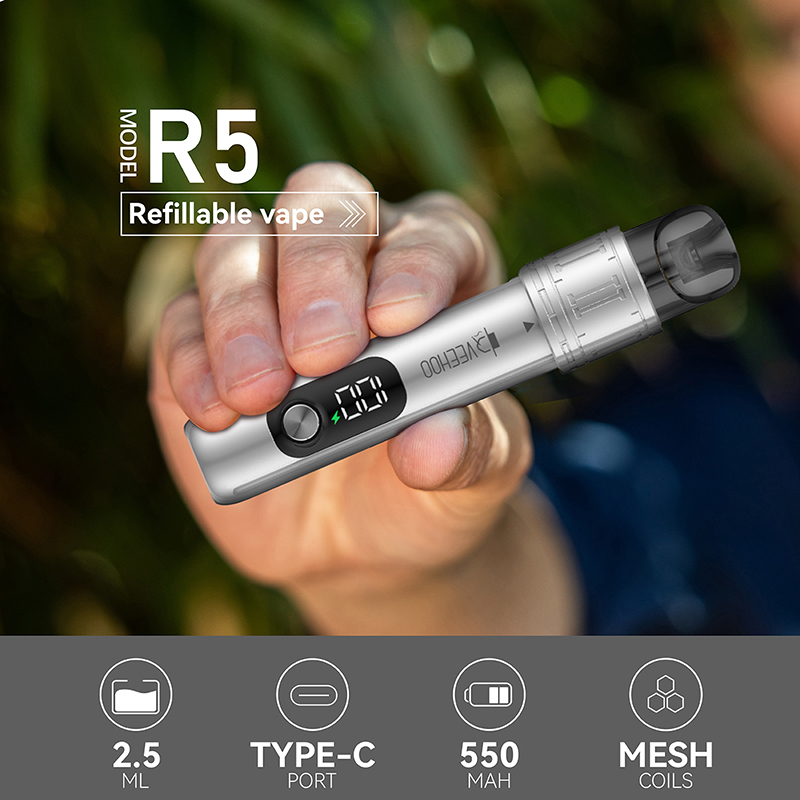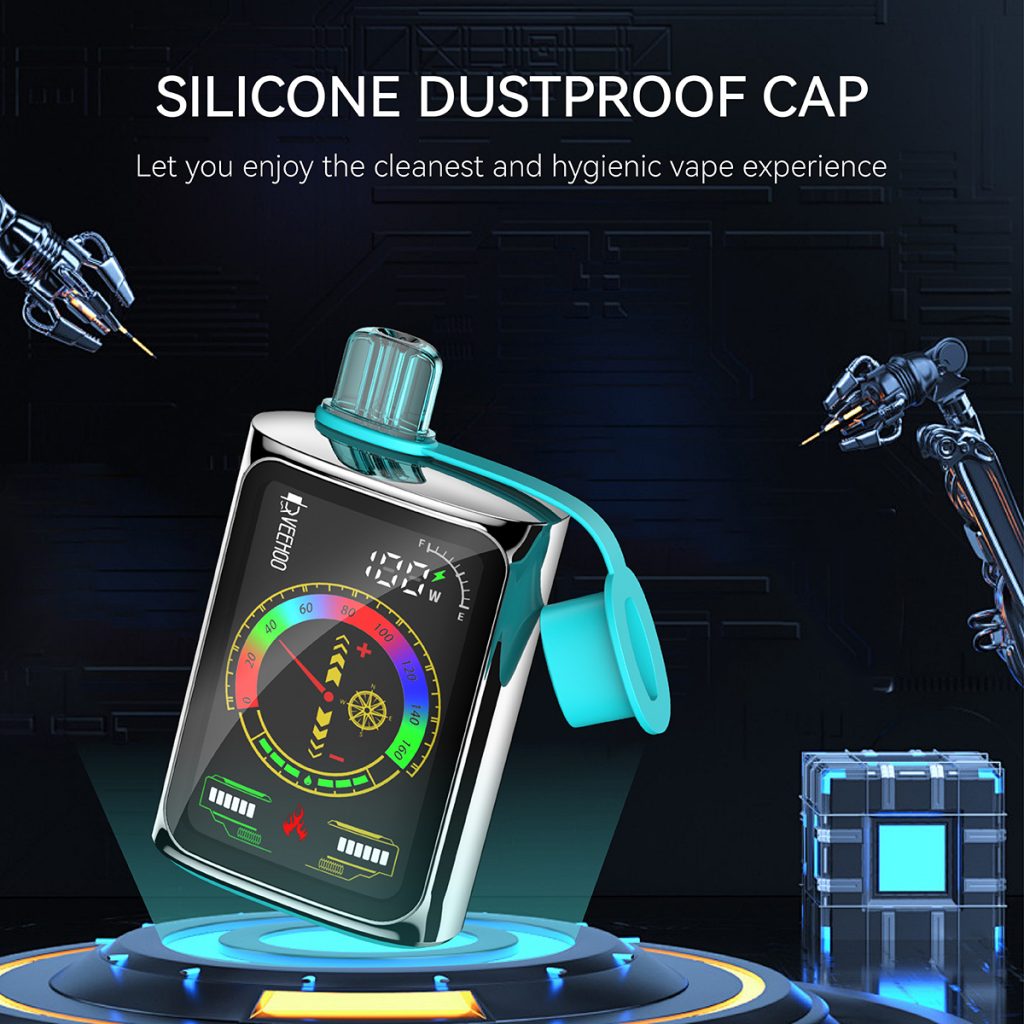The South Korean National Assembly officially passed an important bill on July 23, 2025, which completely prohibits the installation of e-cigarette vending machines in educational environment protection areas (i.e., campuses and a certain range around them). This move marks a key step forward in the country’s efforts to protect the health of young people. The new legislation brings e-cigarette vending machines under the jurisdiction of the Education Environment Protection Act to fill the gap in the previous law’s supervision of e-cigarette vending facilities. This decision has attracted widespread attention in society, reflecting the South Korean government’s high attention and active response to the problem of youth smoking.
The background of the National Assembly’s legislative revision this time is that the current Tobacco Industry Act only recognizes natural nicotine products made from tobacco leaves as tobacco, and synthetic nicotine e-cigarettes are not within its jurisdiction. This has led to many e-cigarette products using synthetic nicotine, especially those sold through unmanned vending machines, being outside the law, resulting in unmanned vending facilities being set up around campuses, making them easy for young people to access. Therefore, this amendment specifically includes e-cigarette vending machines in the management of educational environment protection zones, thereby prohibiting the installation of such devices around schools.
This amendment has received widespread support from all sectors of society. Many experts and public representatives believe that this move effectively includes vending machines as a channel that may induce minors under supervision, fills regulatory blind spots, and builds a protective barrier for primary and secondary schools and the surrounding environment. Kang Kyung‑sook, a member of parliament and the proposer of the Education Environment Act, pointed out: “As the risk of young people using e-cigarettes increases, society is calling for stronger control. The introduction of this law is to protect students’ health and create a safer educational space.”
The proportion of young people using e-cigarettes in South Korea has been on the rise in recent years. A data shows that the use rate of liquid e-cigarettes by middle school and high school students has increased from 2.2% in 2017 to 2.9% in 2021. Although it has slightly decreased in the same period of 2020 due to the epidemic, it is still on the rise overall. These figures show that e-cigarettes have become a health hazard that cannot be ignored among school students. This legislation is a response and reinforcement to the problem of teenagers’ easy access to e-cigarettes caused by unmanned vending facilities around campuses.

After the thesis-style explanation, we can analyze it from several angles: the necessity of the bill, the positive effects that may be brought about after its implementation, the impact on brands such as VEEHOO, and the potential positive aspects of e-cigarettes under reasonable supervision.
First, from the necessity of the bill, the “unsupervised” nature of vending machines is easily exploited by minors, especially after school or evening self-study, and these devices may not be able to effectively identify the user’s identity or age, and the monitoring loopholes are obvious. After the law is passed, it will clearly prohibit any existence of this sales method in the education protection zone, which will help reduce the convenience incentives in teenagers’ behavior and cut off their access channels.
Secondly, from the perspective of preventive education and campus environmental protection, such legislation further strengthens the concept of smoke-free and e-cigarette-free zones in campuses and their surrounding spaces. The consensus among parents, schools, and the government has been consolidated, which will help create a healthy, smoke-free, and focused learning environment. The legislation also calls on companies to implement self-discipline and reduce the display of tobacco products online or on advertising platforms to avoid potential propaganda inducements.
Third, we can mention the VEEHOO e-cigarette brand and the positive aspects of the brand in a reasonably regulated and standardized market environment. VEEHOO is one of the more well-known e-cigarette brands in the Korean and even international markets. Its products are usually sold through formal channels, emphasizing quality control and adult user identity verification. If VEEHOO can actively cooperate with national laws and regulations, not set up vending machines in education areas, but instead focus on strict age verification sales in physical retail stores, provide safety product instructions, and promote adult user education content, then this will be a plus for its brand image. If the brand can actively participate in minors’ prevention propaganda, participate in health education, and emphasize not selling to minors, it will be able to gain the trust of consumers and society in the new regulatory environment.

From the consumer’s perspective, VEEHOO’s product advantages include: using standardized nicotine e-liquid, clear labeling, no combustion to produce tar and carbon monoxide, equipped with overheating protection mechanism, and emphasizing equipment recycling and environmentally friendly design. Some medical professionals believe that e-cigarettes may reduce exposure to carcinogens compared to traditional paper cigarettes, and the number of toxic substances produced by e-cigarettes is smaller than the thousands of chemicals produced by combustion. If VEEHOO pays attention to these compliance and safety designs and uses them to help traditional smokers transition to less harmful products, it still has a certain potential positive effect.
In addition, the social education level outside of supervision cannot be ignored. If the brand participates in youth anti-smoking education, transparently announces the risks of e-cigarette use, emphasizes the legal age for purchase, and warns of the risk of nicotine addiction, it will be given extra points. As recommended by WHO and other organizations, adding warning labels and age verification to nicotine-containing products is an important channel to effectively prevent underage use.
In the future implementation process, the government can cooperate with the education department and local governments to conduct regular inspections and publicity and prevention around schools, and quickly dismantle vending machines that are set up illegally. Enterprises can take the initiative to adjust their sales strategies, such as closing unmanned sales points in school protection areas, strengthening online sales age certification, and strengthening product label management. If VEEHOO can combine these requirements, focus on the development of the legal adult market, and participate in health education and self-discipline, it will win credibility for itself and contribute to the positive development of the industry.

In short, the legislation passed by the South Korean National Assembly this time is not only a technical specification, but also a solid institutional guarantee for the protection of the growth environment of young people. It not only fills the loopholes in the past laws on the supervision of e-cigarette vending machines, but also provides more reliable legal protection for all parties concerned about the health of young people. Under the organic combination of brand and market rational norms, if brands such as VEEHOO can abide by laws and regulations, assume social responsibilities, and promote the concept of safe use, they can achieve compliant development in the new regulatory landscape and contribute to public health at the same time.
From a broader perspective, we can actually see that many countries around the world are moving in this direction. For example, under the WHO FCTC framework, restrictions on vending machine sales, sales near campuses, and online sales are proposed. South Korea’s legislation echoes the international trend. In the future, it may be further expanded to restrictions on flavor additives, online advertising displays, and the improvement of the comprehensive taxation and regulatory system for synthetic nicotine products.
Therefore, for the implementation of the bill of the Korean National Assembly to “prohibit the installation of electronic cigarette vending machines in educational areas”, we can deeply understand that it is not only a specific regulatory measure, but also a manifestation of the public health policy concept: using the law to build a line of defense for the health of young people around the campus. In this process, if standardized brands such as VEEHOO can actively cooperate and play a demonstration role, they will usher in more stable and responsible development opportunities under the new market order.
Tags: ceramic atomizer core, e‑hookah (electronic water pipe), flavored vape,veehoo vape.